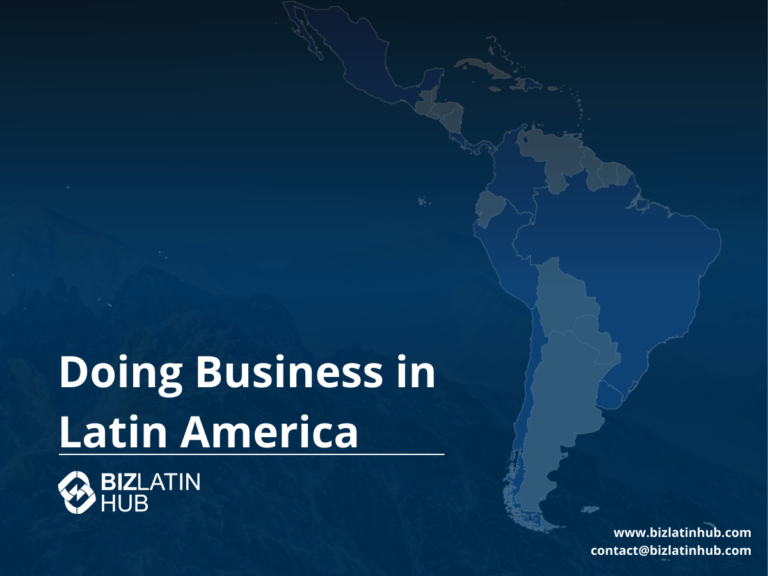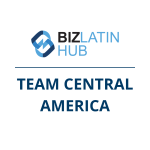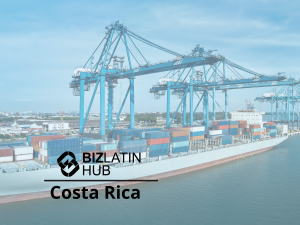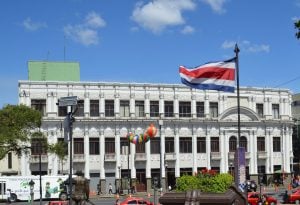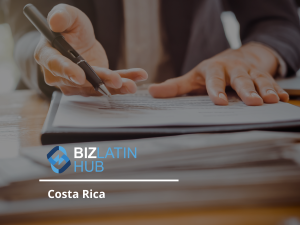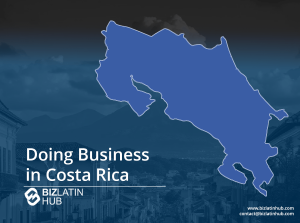Trademark laws in Central America vary by country, but each jurisdiction provides mechanisms to protect your brand. This 2025 guide outlines how to register a trademark in seven Central American countries, including filing procedures, timeframes, and requirements. This is critical for company formation in Latin America.
Key takeaways on trademark registration in Central America
| Process for trademark registration in Central America | The specifics vary by country, but as a general overview: Conduct a trademark search. Classify your goods and/or services. Start your (often online) trademark application. Application review by local authority. Challenge period. Trademark approval and publication. |
| What documents do you need for trademark registration in Central America? | Typically, you will need: Applicant’s details Power of attorney Logo/design file (if applicable) List of goods/services (Nice Classification) |
| Which agency oversees trademark registration in Central America? | Each country has its own dedicated office. |
| What happens if someone makes a challenge? | All countries provide an opposition period, usually 30 to 60 days, during which third parties may contest the registration, and vary on the consequences of the challenge. |
| How long is a trademark valid for? | In all countries, trademarks are valid for 10 years and may be renewed indefinitely every 10 years. |
General Steps for Trademark Registration
Foreign applicants must appoint a local legal representative in each country to file and manage the trademark registration. Generally, it takes 4–8 months, depending on the country, opposition period, and documentation. The specifics vary by country, but as a general overview:
- Conduct a trademark search.
- Classify your goods and/or services.
- Start your (often online) trademark application.
- Application review by local authority.
- Challenge period.
- Trademark approval and publication.
Typically, you will need:
- Applicant’s details
- Power of attorney
- Logo/design file (if applicable)
- List of goods/services (Nice Classification)
Why Trademark Protection Matters in Central America
Registering your trademark comes with many advantages, including:
- Protection of the trademark in the country of registration
- Right to file legal action against those who violate the use of your trademark for their commercial benefit
- Right to restrict the import of goods that use registered trademarks that infringe yours
- Right to license third parties and collect royalties
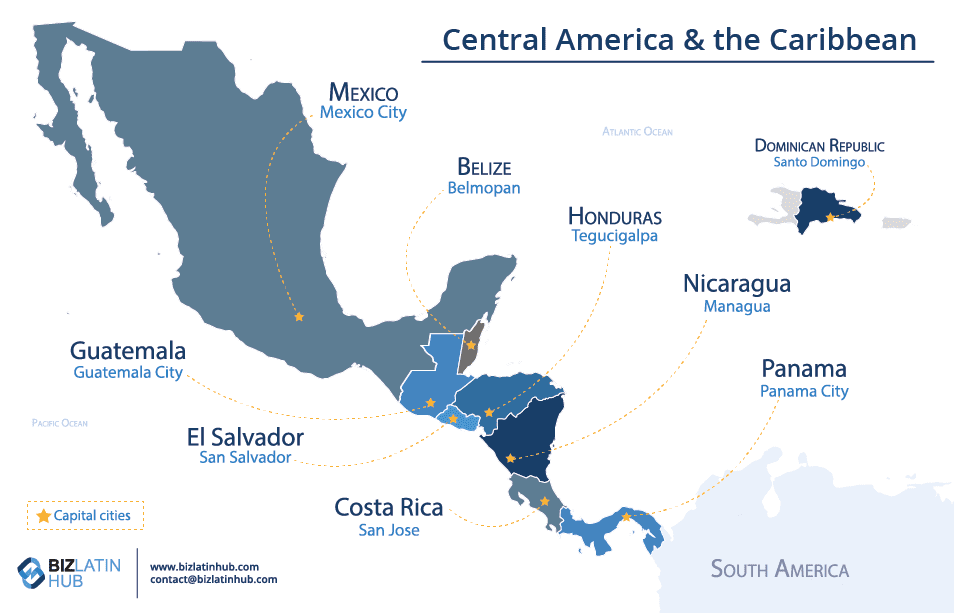
Countries Covered and Key Trademark Offices
Please note that the process to register collective marks and certification marks can be different from the process for trademarks on goods/services. It is best to consult with a local specialist as these differences vary according to the country.
The registration of a trademark is also of a territorial nature. This means the trademark is only protected in the country you applied to, not internationally protected.
| Country | Trademark Office | Validity | Renewal | Opposition Period |
|---|---|---|---|---|
| Belize | BELIPO | 10 years | Yes, every 10 years | 2 months |
| Guatemala | Intellectual Property Registry | 10 years | Yes | 2 months |
| Honduras | Directorate of Intellectual Property | 10 years | Yes | 30 business days |
| El Salvador | National Registry Center (CNR) | 10 years | Yes | 2 months |
| Nicaragua | Ministry of Development (MIFIC) | 10 years | Yes | 30 working days |
| Costa Rica | Registro Nacional | 10 years | Yes | 1 month |
| Panama | DIGERPI | 10 years | Yes | 2 months |
Belize – Belize Intellectual Property Office (BELIPO)
The Belize Intellectual Property Office (BeliPo) manages the protection of intellectual property. This includes trademarks, patents, industrial designs or copyrights.
- Request a trademark search on BeliPo’s website to verify the availability of your trademark
- Fill out the “Application for a Trademark” form (US$37.24 fee for each International Nice Classification class you apply for)
- Publish your trademark in the Intellectual Property Journal (US$124.12 fee)
- Fill out the “Fee for Registration of a Mark” form that costs US$37.24
- Fill out the “Application for an Address for Service” form (US$12.41 fee) if your residence or main location of business is outside of Belize, or you are a local who applies through an attorney
- Fill out the “Form of Authorization of Agent in a Matter of Proceeding Under the Act” if your residence or main location of business is outside of Belize, or you are a local who applies through an attorney.
Costa Rica – Registro Nacional
Costa Rica’s National Registry manages the protection of industrial property, including trademarks.
- Verify the availability of your trademark in the Global Brand Database as it contains information from over 40 industrial property offices around the world
- Fill out the trademark application that requires information such as:
- Place of incorporation and address of the applicant if a juridical person
- If the case may be, the name and type of legal representative or power of attorney (POA)
- Name and address of the POA in the country, if the applicant has no real and effective domicile or establishment in the country
- Name or sign to be registered
- List of the goods/services represented by the trademark and grouped by class number according to the Nice International Classification of Products and Services
- Proof of payment, US$50 (per class if a multi-class application).
El Salvador – National Registry Center (CNR)
The National Registery Center in El Salvador manages trademarks through its Intellectual Property Registry.
- Verify the availability of your trademark for US$20 (optional but very beneficial)
- Submit application along with copied of the trademark
- Publish the trademark in Salvadorian newspapers, allowing other businesses who have similar trademarks to make formal objections against your application
- Two months later, present your design and “posters” to the Intellectual Property Registry for registration of the trademark
- If your trademark faces objections, the Intellectual Property Registry conducts a second review of the application
- Payment of the $100 registration fee.
Guatemala – Intellectual Property Registry
The Intellectual Property Registry manages all trademark applications in Guatemala. Trademark registration in Guatemala requires the advice of an active Guatemalan lawyer and notary.
- With the assistance of a lawyer, complete and sign the registration request form
- Accompanying documents:
- If you are an individual: include with your application a legalized photocopy of your identification
- In the case of a legal entity: include a legalized photocopy of the document proving your representation
- If in the case of an individual or foreign legal entity not residing in Guatemala: include a legalized copy of the mandate accompanied by a special clause granted to a Guatemalan lawyer
- Proof of payment
- The design/name to be trademarked
- Publication of the trademark in the Central American Gazette, allowing other businesses who have similar trademarks to make a formal objections against your application
- Counteract any opposition within 2 months from the first publication
- Pay the registration fee if the application passes the above evaluation process.
Honduras – Directorate of Intellectual Property
The Property Institute manages trademark applications in Honduras. Trademark registration in Honduras requires a Honduran legal representative or POA.
- Apply to verify the availability of your trademark in the Property Institute’s registry
- Complete the trademark application form taking into consideration the Nice classification number of the goods/services, as each application per class costs US$28
- Submit the trademark application along with an authenticated copy of the company’s constitution and copies of the design/name to be trademarked
- Publish the trademarks in the local gazette, allowing others to oppose your trademark if it is similar to an already existing one
- After the oppositions are countered and the application is accepted, an annual payment of US$4 must be paid for trademark maintenance.
Panama – DIGERPI
The General Directorate of Industrial Property of the Ministry of Commerce and Industries regulates trademarks in Panama.
- Verify the availability of your trademark on the above website
- Appoint a POA
- Provide a sworn affidavit outlining how you intend to use the trademarked item
- Provide a description of the item you want to trademark
- Include with your application 3 branded samples of the trademark
- Provide a certification of the registered trademark if registered in another country (this must be notarized, and apostilled or authenticated by the other country’s local Consulate of Panama)
- Pay the registration fee of US$140.50.
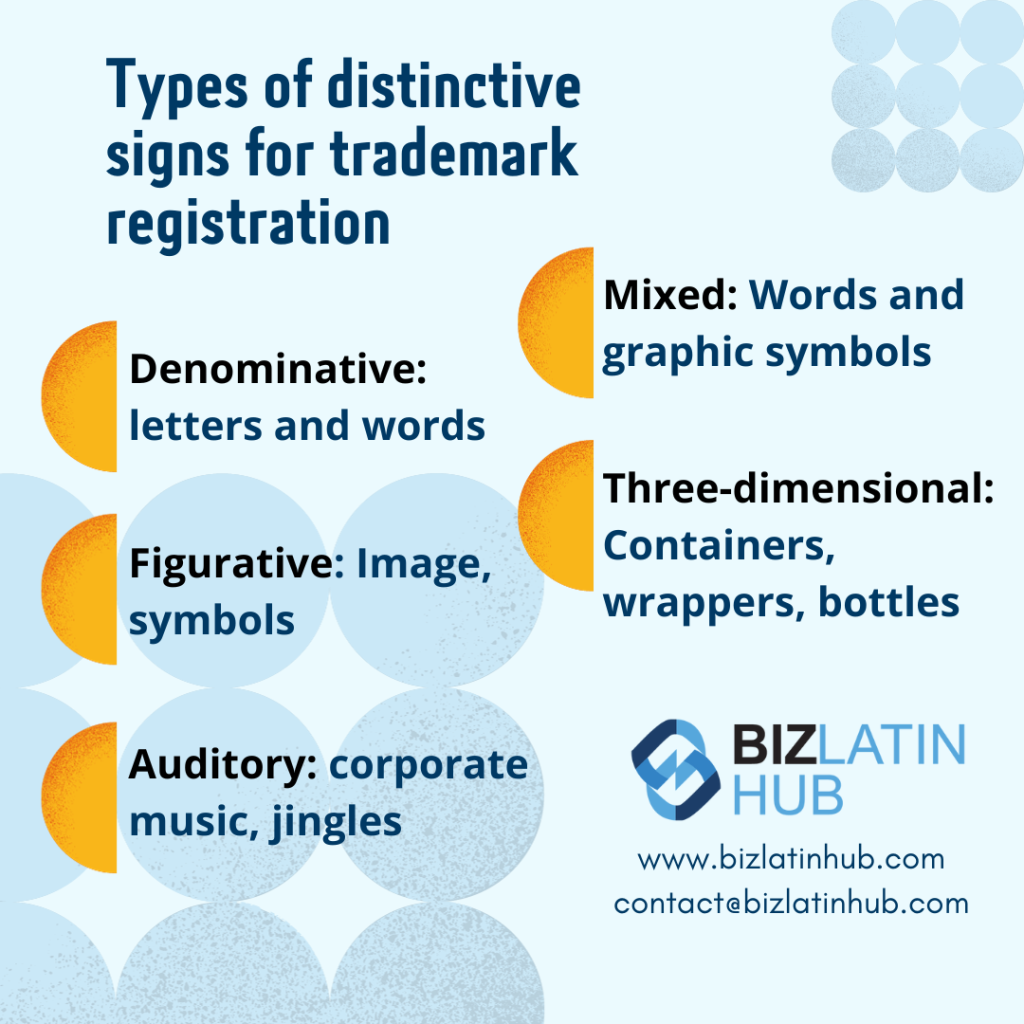
Required Documents and Local Representation
After you register your trademark in Central America, you must take certain steps to regularly ensure that no other third party is attempting to use your trademark, or register a design considered identical or too similar to your own. This involves conducting regular trademark searches in Central American trademark databases, which may be time-consuming and difficult to navigate
Additionally, certain trademark regulations in some countries require proof that a trademark owner is applying that trademark for commercial use. In some cases, businesses or individuals who have registered a trademark may run the risk of losing their exclusive right over their design if they are not actively using it.
Validity, Renewal Periods, and Legal Enforcement
Finally, trademark owners must take note of expiration dates for their trademarks in the country or countries they operate in. This can be challenging for multinational firms or those holding multiple trademarks at any given time. In all countries, trademarks are valid for 10 years and may be renewed indefinitely every 10 years.
It is important not to leave your business vulnerable to losing exclusive use of a trademark in Central America if it is due to expire soon.
Work with a specialist on your trademark in Central America
Save your team time and prevent unnecessary risk by working with an experienced trademark specialist in Central America. A trustworthy provider of trademark services can support you with your application registration, plus the ongoing maintenance requirements for your trademark as set by local law.
Trademark specialists can monitor other new trademark applications to identify any legal issues with pending designs, provide guidance on any relevant requisite to demonstrate the use of your trademark, and remind your team when trademark renewal is due. All countries provide an opposition period, usually 30 to 60 days, during which third parties may contest the registration.
FAQs on trademark protection in Central America
No. Each country has its own independent trademark system. You must file separate applications in each jurisdiction.
Yes. Foreign applicants must appoint a local legal representative in each country to file and manage the trademark registration.
Generally, it takes 4–8 months, depending on the country, opposition period, and documentation.
Typically, you will need:
Applicant’s details
Power of attorney
Logo/design file (if applicable)
List of goods/services (Nice Classification)
Yes. All countries provide an opposition period, usually 30 to 60 days, during which third parties may contest the registration.
In all countries, trademarks are valid for 10 years and may be renewed indefinitely every 10 years.
Biz Latin Hub can help you protect your trademark in Central America
Certain governments, such as Guatemala and Honduras, require the involvement of a local lawyer or legal representative to register a trademark. If not required, it is still best to connect with a local lawyer who can bridge bureaucratic and cultural gaps between your company and local institutions. This may mean finding a bilingual representative to register a trademark in Central America.
Of all the seven countries in the region, Belize is the only country where street signs, documents, and all official paperwork is in British English. All other countries in this region operate in Spanish. Nevertheless, many executives make the mistake of assuming cultural similarities between two countries that speak the same language.
Get in touch with us – our local experts support new and expanding businesses across Latin America. We offer personalized advice for your trademark registration process and company incorporation in Belize, Costa Rica, El Salvador, Panama, Guatemala, Honduras and Panama.
Learn more about our teams and expert authors.

